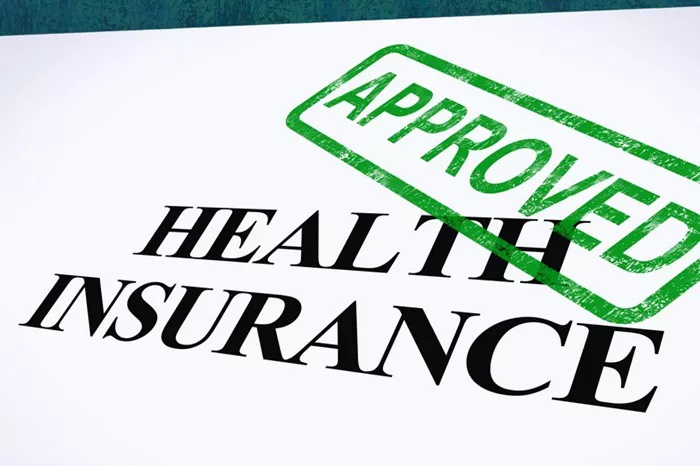Accidental insurance is an important aspect of personal financial protection, designed to cover unexpected events and emergencies caused by accidents. This type of insurance provides specialized benefits that can significantly impact your financial stability during unforeseen incidents. In this comprehensive guide, we will delve into what accidental insurance covers, outlining its features, benefits, limitations, and how to choose the right policy. By the end, you will have a clearer understanding of how accidental insurance can play a crucial role in your overall insurance strategy.
Understanding Accidental Insurance
Accidental insurance offers coverage specifically for injuries or death resulting from accidents. Unlike traditional health insurance, which provides broader medical coverage, accidental insurance focuses on accidents that are sudden, unexpected, and unforeseen.
Key Features of Accidental Insurance
Accidental insurance policies typically include several key features:
Accidental Death and Dismemberment (AD&D) Coverage
Accidental Death Benefit
Provides a lump sum payment to the policyholder’s beneficiaries if the insured dies due to an accident.
Dismemberment Benefit
Offers financial compensation for the loss of limbs, eyesight, or hearing as a result of an accident.
Accidental Injury Coverage
Medical Expenses
Covers medical costs incurred from treating injuries caused by accidents, including hospital stays, surgeries, and follow-up treatments.
Emergency Medical Evacuation
Provides coverage for emergency transportation to medical facilities in case of severe accidents, especially when traveling abroad.
Income Replacement
Temporary Disability
Offers benefits if the insured is temporarily unable to work due to an accident, providing a percentage of their regular income during recovery.
Permanent Disability
Provides financial support if the insured suffers a permanent disability that impacts their ability to work and perform daily activities.
Types of Coverage Provided
Accidental insurance policies can vary in the type of coverage they offer. Understanding these variations is crucial for selecting the right policy for your needs.
Basic Accidental Coverage
Coverage Scope
Includes essential benefits such as accidental death, dismemberment, and basic medical expense coverage.
Affordability
Often the most affordable option, suitable for individuals seeking fundamental protection against accidental events.
Comprehensive Accidental Coverage
Extended Benefits
Offers a wider range of benefits, including higher compensation limits and additional coverage options.
Enhanced Protection
May include coverage for rehabilitation, home modifications, and other costs related to severe accidents.
Accidental Insurance Add-Ons
Critical Illness Coverage
Provides additional benefits if the policyholder is diagnosed with a serious illness resulting from an accident.
Accidental Hospital Indemnity
Offers a daily benefit for each day spent in the hospital due to an accident, covering additional expenses beyond standard medical coverage.
Benefits of Accidental Insurance
Accidental insurance provides several benefits that can be invaluable in the event of an accident. These benefits include financial protection, peace of mind, and flexible coverage options.
Financial Protection
Lump Sum Payments
Accidental Death: Ensures financial security for beneficiaries in the event of the policyholder’s accidental death.
Dismemberment: Offers compensation for specific types of dismemberment, alleviating the financial burden of significant injuries.
Medical Expense Coverage
Hospital Costs: Helps cover the cost of hospital stays, surgeries, and other medical treatments resulting from an accident.
Rehabilitation: Provides financial support for rehabilitation and recovery services, including physical therapy and occupational therapy.
Peace of Mind
Security in Unexpected Situations
Protection Against Financial Hardship: Reduces the stress and financial strain associated with unexpected accidents by providing necessary funds and coverage.
Coverage for Loved Ones: Ensures that your family and dependents are protected and financially supported if you are unable to provide for them due to an accident.
Emotional Assurance
Reduced Anxiety: Knowing that you have accidental insurance in place can alleviate anxiety about potential accidents and their financial impact.
Coverage Flexibility
Customizable Options
Tailored Policies: Allows you to customize your coverage based on your specific needs, lifestyle, and risk factors.
Add-Ons and Riders: Offers additional options to enhance your policy, such as critical illness coverage or accidental hospital indemnity.
Adaptability
Adjustable Limits: Provides flexibility to adjust coverage limits and benefits as your circumstances change over time.
See Also: Why Are Deductibles So High for Health Insurance
Limitations of Accidental Insurance
While accidental insurance offers valuable protection, it is important to be aware of its limitations and exclusions. Understanding these can help you make informed decisions about your coverage.
Exclusions
Pre-Existing Conditions
Definition: Injuries or conditions that existed before the policy was purchased may not be covered.
Policy Terms: Review policy terms carefully to understand what is excluded and ensure you are aware of any limitations related to pre-existing conditions.
High-Risk Activities
Exclusions for Certain Activities: Activities such as extreme sports, skydiving, or hazardous occupations may be excluded from coverage.
Clarification: Ensure you understand which activities are covered by your policy and consider additional coverage options if needed.
Coverage Limits
Maximum Benefits
Coverage Caps: Policies often have maximum limits on the amount of compensation or benefits provided.
Adequacy: Assess whether the coverage limits are sufficient to meet your needs and consider higher limits if necessary.
Deductibles and Co-Payments
Out-of-Pocket Costs: Some policies may require deductibles or co-payments for certain services, which can impact the overall financial protection provided.
Financial Planning: Factor these potential costs into your financial planning to ensure you are prepared for any out-of-pocket expenses.
How to Choose the Right Accidental Insurance Policy
Selecting the appropriate accidental insurance policy requires a thoughtful approach to ensure that it aligns with your personal and financial needs. The process involves assessing your individual requirements, comparing various policies, and seeking expert advice to make an informed decision. Here is a detailed guide on how to choose the right accidental insurance policy for you:
Assess Your Needs
Evaluate Your Lifestyle and Risk Factors
To begin with, it is essential to conduct a comprehensive evaluation of your lifestyle and associated risk factors. Consider the nature of your daily activities, whether they involve high-risk occupations or hobbies such as extreme sports, which might increase your likelihood of accidents. By understanding the specific risks you face, you can determine the level of coverage that would best protect you in the event of an accident. For instance, if you frequently engage in activities that have a higher probability of resulting in injury, you may need a policy with more extensive coverage to address potential medical expenses and loss of income.
Consider the Needs of Your Dependents
Another crucial aspect is to consider the needs of your family and dependents. Assess how an accident could impact their financial security and well-being. If you are the primary breadwinner or have dependents who rely on your income, selecting a policy that provides adequate income replacement benefits becomes essential. Ensure that the policy you choose offers sufficient coverage to support your loved ones in the event of your accidental death or disability, helping to maintain their standard of living during your absence.
Compare Policies
Review Coverage Options and Benefits
Once you have a clear understanding of your needs, the next step is to review and compare the coverage options and benefits provided by different accidental insurance policies. Look for policies that offer comprehensive coverage for accidental death, dismemberment, and injury, and evaluate the specifics of each policy’s benefits. Pay attention to additional features such as emergency medical evacuation, rehabilitation services, and critical illness coverage, as these can significantly enhance the overall protection offered by the policy. Comparing these aspects will help you identify the policy that best matches your requirements.
Examine Exclusions and Coverage Limits
It is equally important to examine the exclusions and coverage limits associated with each policy. Every insurance policy has certain exclusions, such as pre-existing conditions or specific high-risk activities, which may not be covered. Understanding these exclusions is crucial to ensure that you are not caught off guard by any limitations in your coverage. Additionally, review the coverage limits to determine if they are adequate to meet your potential needs. Policies often have caps on the amount of compensation or benefits provided, so make sure the limits align with your financial protection goals.
Evaluate Premium Costs
The cost of premiums is another critical factor to consider when choosing an accidental insurance policy. Compare the premiums of different policies in relation to the coverage provided and your budget. While it is important to find an affordable policy, ensure that cost does not come at the expense of essential coverage. Evaluate the overall value of the policy by considering the balance between premium costs, coverage benefits, and any potential out-of-pocket expenses, such as deductibles or co-payments.
Consult with an Insurance Expert
Seek Professional Guidance
If you find the process of choosing an accidental insurance policy complex, consulting with an insurance expert can provide valuable insights and guidance. An insurance expert can help you navigate the various options available, offer personalized recommendations based on your specific needs, and clarify any questions you may have about policy terms and conditions. Their expertise can be instrumental in making an informed decision, ensuring that you select a policy that provides adequate protection and aligns with your financial goals.
Review and Update Your Policy Regularly
Finally, it is essential to regularly review and update your accidental insurance policy to ensure that it continues to meet your evolving needs. As your lifestyle, activities, and financial situation change, your insurance requirements may also shift. Periodic reviews allow you to make necessary adjustments to your coverage, ensuring that you maintain adequate protection throughout different stages of life. Consulting with an insurance expert during these reviews can help you stay informed about any changes in policy options or benefits.
Conclusion
Accidental insurance provides essential financial protection in the event of unexpected accidents, offering coverage for accidental death, injury, and dismemberment. By understanding what accidental insurance covers, including its features, benefits, and limitations, you can make informed decisions about your personal financial protection. Careful consideration of your needs, comparison of policies, and consultation with an insurance expert will help you select the right accidental insurance policy to ensure you and your loved ones are adequately protected.






















